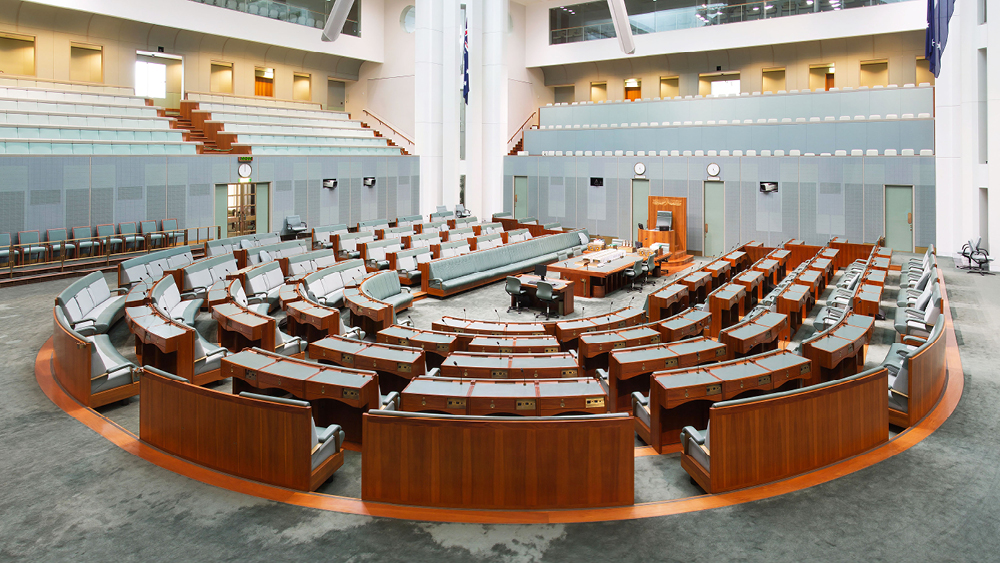Labor pulls anti-discrimination bill, rejects PM's calls for conscience vote
Labor has withdrawn its bill to amend sex discrimination laws to prevent discrimination against students in religious schools.
The move comes after it became clear Coalition and Labor would be unable to reach agreement on amendments to the Sex Discrimination Act.
“It is a disappointing outcome because it means LGBTIQ kids now face the prospect of returning to school next year knowing they could be expelled or discriminated against because they are gay,” Labor Senator Penny Wong told parliament.
Prime Minister Scott Morrison, who had previously promised to change the laws to make it clear that religious schools could not expel a student based on their sexual orientation alone, has now said he would allow a conscience vote on the issue, to break the deadlock.
“We all agree that there should be no discrimination against children,” he told a press conference this morning.
If there is an agreement on a conscience vote, the bill may be revived.
The Coalition have put forward their own amendments to the Sex Discrimination Act, which purport to remove the ability to discriminate against students based on sexual orientation, while clarifying indirect discrimination by suggesting that in deciding whether a school rule is reasonable (eg. by mandating attendance at school chapel), the courts should take into account the religious nature of the school and whether the school considered the best interests of the child. A further clarification was proposed to ensure, according to Morrison, that “nothing in the Act prevents a religious school from teaching in accordance with their own religious beliefs, an amendment Morrison says has already been accepted by Labor by its incorporation into the Bill’s second reading speech.
12:46pm Leader of the Opposition, Bill Shorten press conference
A conscience vote is off the table, after Opposition Bill Shorten accused the accused the Prime Minister of “weaponising” the dispute in calling for a conscience vote and further complicating what he says is a “simple amendment.”
Labor’s education spokesperson Tanya Plibersek told the press conference that Labor politicians didn’t need a conscience vote because they agree that discrimination against LGBTIQ students should not be allowed.
The Labor Party is standing by their proposed amendments and say the Coalition’s additional amendments would mean just re-introducing “the same discrimination sought to be removed, in a new form.”
Shorten said the bill in the Senate had been withdrawn to allow “more time to progress discussions and make sure we get it right.”
“The question is: if you don’t have a solution do you engage in a train wreck or do you draw breath.”
12.57pm Religious organisations write to PM, Opposition Leader, warning of Labor bill shortfalls
An open letter, signed by the Sydney Anglican Archbishop Glenn Davies; Moderator-General of the Presbyterian Church of Australia, John Wilson; Christian Schools Australia and the Australian Association of Christian Schools was sent this morning to the PM and Opposition Leader in a last-ditch effort to highlight religious concerns about the Labor bill.
“While we acknowledge that it may be an unintended consequence, this Bill represents an extraordinary attack on this fundamental freedom,” the letter reads.
“In respect of its limitations on religious institutions and schools, the Bill – if passed without the suite of amendments proposed by the Government – goes well beyond its stated aim. For example, in the amendment to s 37 of the Sex Discrimination Act proposed by Labor, anti-discrimination law would extend beyond the schoolyard and into churches, synagogues, mosques and temples nationwide wherever their actions are ‘connected with the provision … of education’, censoring doctrines that are thousands of years in the making. This is an extraordinary and unprecedented incursion on religious freedom in this country.
“In removing the exception to discrimination law in s 38(3) of the Act without providing any balancing measures for faith-based educational institutions (including tertiary institutions), the Bill would allow the threat of discrimination claims to censor religious teaching and deny educational institutions the right to adopt and enforce policies on how to manage behaviour, codes of dress, language activism, access to facilities and in respect of accommodation arrangements.
“The impact of these changes is to deny faith based educational institutions the right to operate consistently with the principles on which they are founded and to build and maintain a culture of adherence to the tenets of their faith. That very culture is the reason families nationwide choose to send over one million Australian students to faith based schools.
“Labor’s Bill will fundamentally undermine the ability of religious educational institutions from the local church Sunday school through to schools and universities to operate according to their religious beliefs. It will censor what can be taught in religious services unconnected with schools. In doing so, it strips the fundamental human rights of people of faith.
“The Bill fails to provide the clear protections offered to students by the government amendments. The Bill does not provide students the ability to be notified of the beliefs of a school. This is a condition provided in the government amendments in the interests of students, a reform we support. The government amendments also require that schools have regard to the best interests of the child. This is a requirement that is not presented in the Labor Bill, and is a reasonable protection.
“We implore Labor and the cross-bench Parliamentarians, in a spirit of bi-partisanship on such an important issue, to support the Government’s amendments to the Bill which provide a measure of protection to the ethos of our institutions whilst ensuring that students do not face discrimination on the basis of their sexuality. We regard these measures as essential to the ongoing role of our faiths in the Australian education landscape, and to the very nature of the freedom of Australians.”
Email This Story
Why not send this to a friend?

